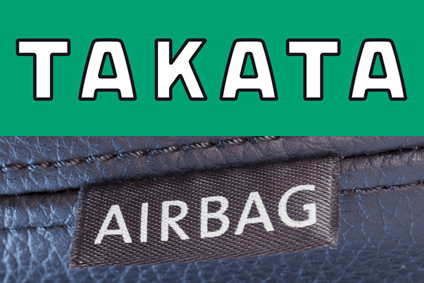Spontaneous deployment of air bags. Not a nice thought, especially for a young woman in Georgia.
According to this New York Times investigative report, “the air bags manufactured by Takata in her 2001 Honda Civic spontaneously deployed. She was hit by metal shards from the canister that housed the air bag’s propellant; the shards were sharp enough to penetrate the fabric of the air bag and puncture her neck and carotid artery. [She] required several operations and later suffered seizures and several strokes, her lawyers said…”
“Recalls related to air bags have affected at least 10m of the more than 30 million cars recalled in the United States so far this year”, according to a Times review of regulatory records.
This shows the downside of so many makes and models all using much the same component from the same supplier from a limited choice – according to the article, Takata has about 20% of the air bag market, in a field dominated by three major suppliers: the other two are Autoliv, which has about 35% of the global market; and TRW Automotive, which has about 20%.
Both supplier and automaker have stepped up to the plate and recalls and/or safety check plans are well in hand, as we have reported these past few weeks, but the number of cars is staggering and many are quite old now.
It’s the same with GM’s ignition switches, focus of another ongoing recall, and with the ‘sticky’ Toyota ‘sticky’ accelerator pedals a few years ago – using the same common parts across millions of cars makes sense at purchase time but it sure hikes the costs when those same millions of cars all have to be recalled years hence. Another relatively recent example is those driver door power window switch clusters used across various Hondas that were prone to causing a fire if they got damp.
While the series of events that led to GM, allegedly, approving for production an ignition switch its supplier said did not meet its specification and, incredibly, subsequently approving a revision (that fixed the accidental turn-off problem), without assigning a new part number, will surely eventually be clarified, it’s also clear that, with some issues, despite extensive component and vehicle testing ahead of production, the problem only appears once vehicles are on the roads, and sometimes not for years.
As the NY Times notes, Takata has made airbags since 1988 (so has 25 years of experience) and it is unclear when the supplier became aware of possible defects in its air bags, some manufactured over a decade ago at its plant in Mexico. Takata said in a statement it thought excessive moisture was behind the defect. Moisture and humidity could be seeping inside inflators, destabilising the volatile propellant inside, according to an official at the vehicle recall section of the Ministry of Land, Infrastructure, Transport and Tourism in Japan. But how do you – supplier or automaker – devise a test to check for that long-term degradation in specific climatic conditions before pushing the volume production button?
American regulators told the Times they had received six reports of air bag inflator ruptures, all in Florida or Puerto Rico, before this week’s recalls. “Based on the limited data available at this time, NHTSA supports efforts by automakers to address the immediate risk in areas that have consistently hot, humid conditions over extended periods of time.” the agency said in a statement.
However this issue – first identified at least four years ago – appears to be more than just bad luck.
The Times investigation found the inflator’s metal case ruptures because the propellant inside was not properly prepared and creates more pressure than intended, sending shards of metal into the passenger compartment. Honda, a major user of Takata airbags, first issued a limited recall of its Accord and Civic models in 2008, saying air bag inflators could blow up violently, propelling dangerous debris into the car. Two deaths in the US have been linked to exploding air bags, in Oklahoma and Virginia, both in 2009 and in Honda vehicles. In both cases, Honda and Takata settled with the families of the victims.
Last week, Takata said that it had improperly stored chemicals and had mishandled the manufacture of explosive propellants, used in the air bags, at its plant in Mexico. The manufacturer had also failed to keep adequate records of quality control, making it difficult to identify vehicles with potentially defective air bags and prompting a second round of recalls, the Times reported.
“We take this situation seriously, will strengthen our quality control and make a concerted effort to prevent a recurrence,” the company has said.
I wonder what the long-term effect will be on automaker-supplier relations. Will automakers axe the supplier as contracts tied to model lives end, as happened after the much-publicised Ford Explorer/Firestone tyre debacle years ago?
Or will costs and blame be apportioned, bottom lines duly hit by one-off charges, ‘lessons learned’ and everyone – eventually – moves on?







